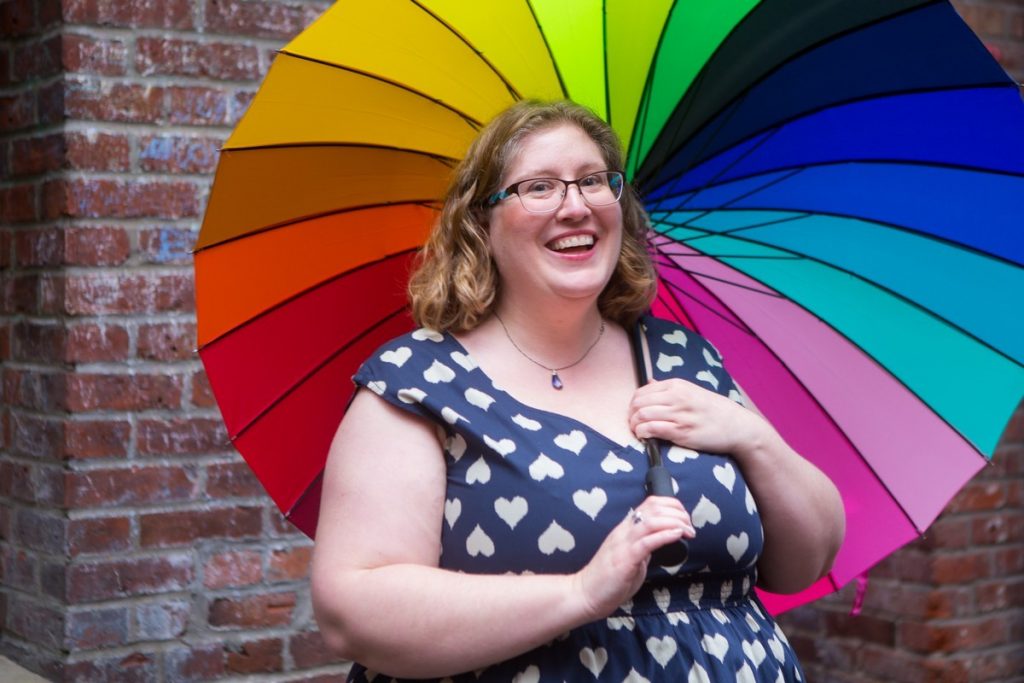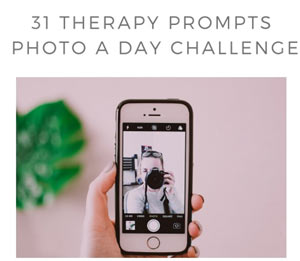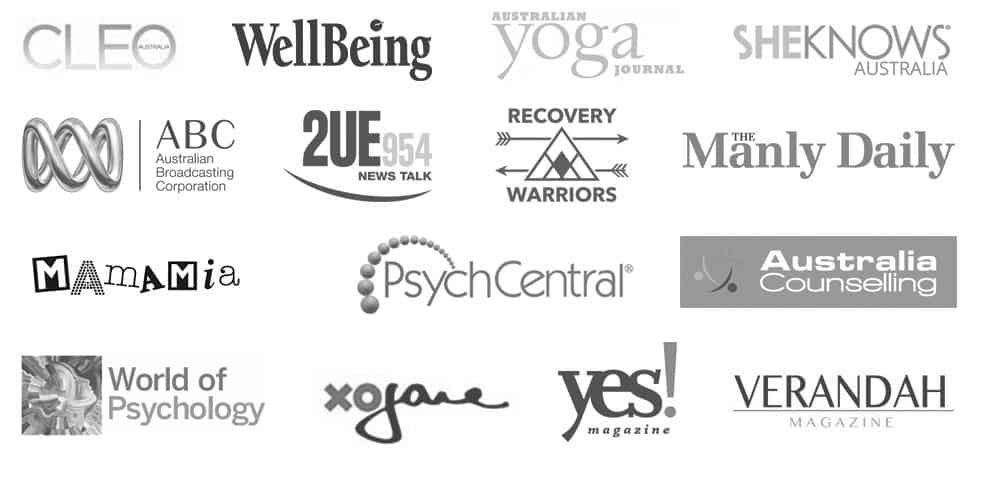
I am super excited to bring this interview with Lindley Ashline to you. Lindley is the go-to for all things body liberation and she has some wonderful advice here for therapists about why we should be using more diverse stock photos.
I hope you enjoy my interview with Lindley!
Welcome Lindley, would you please share with our readers who you are, what you do and how you came to this work?
Hi Jodie! I’m Lindley (pronounced LIN-lee) and I use she/her pronouns. I’m a body-positive and fat-positive photographer, writer and activist.
I live in Seattle, Washington in the United States with my husband, feline overlord and far too many houseplants.
There are two important frameworks that you adhere to: Health at Every Size® and body liberation. Would you please share with our readers a little bit about what these are?
All my work is based on liberating bodies from the systems of oppression that make us think that some bodies are better than others.
I’m body positive — I believe that all bodies have worth as they exist today — and fat positive — I believe that fat bodies (I’m using the word “fat” as a neutral descriptor) are not just worthy, but have unique beauty and value of their own.
Body liberation wraps these concepts into strategically fighting for equal treatment and access for every person who’s oppressed for something related to their body, from fat people to Black people to Indigenous people to people with disabilities and more.
Health at Every Size®, or HAES®, is a subset of the fight for body liberation that does two things:
- Works to increase access to healthcare for fat people
- Offers a framework to pursue healthy behaviors at any body size rather than unsustainable and risky weight loss
Why is it important that there is size diversity and more diverse stock photos online?
Representation matters. When the vast majority of humans aren’t represented, and only one type of body is, that’s a big issue, because the bodies we see become what is “normal” to us. And when the bodies that are represented are not only all from one small population, but are then altered beyond what’s possible for human bodies to achieve with Photoshop, we can’t possibly measure up.
It’s kind of wild that a relatively small set of images online affects how we see ourselves, but we have plenty of evidence that that’s how it works.
I love this quote from Emily Nagoski: “The images we see—or don’t see—matter. They tell us what’s possible.”
Why is it particularly important that therapists include size diverse images in their marketing materials and online content?
Unless you’ve got a side gig as a photographer, you’ve probably used a stock photo before.
Stock photos are the images that many businesses — from small to large — use in their advertising, social media, websites and more. Companies buy them from central websites (which usually pay the photographers who took the photos a certain amount of money per sale, though the industry varies) because it’s way cheaper to do it that way than to hire a photographer and get custom photos made every time you want to make an Instagram post.
The problem is that most stock photos reflect the same narrow set of bodies we see represented on TV and in the movies.
Seeking out size-diverse images to use in your marketing materials and on social media is more challenging, but it’s worth it for two reasons:
- Every single time we represent larger bodies in a positive, respectful, dignified, equally worthy light, we do a tiny bit to change the world.
- Your images should reflect (at minimum!) the variety of bodies your real-world clients have. As a therapist, it’s so important for your clients or patients to feel welcomed and safe, and one of the best ways to do that is to show that you appreciate the bodies they actually live in just as much as idealized ones.
Why is it crucial for therapists to be aware of their body privilege and how this might impact their clients?
This is such an interesting question! When we talk about body privileges, we talk about the traits our bodies have that give us privileges that people in other kinds of bodies lack.
Having a privilege, by the way, isn’t something you need to be ashamed of! It’s just something to be aware of.
For example, I’m a fat, white, cisgender, heterosexual, middle-class woman in the United States who lives with autism and an anxiety disorder. Some of those traits give me privileges, while other traits deny me the privileges that those without them have.
In the real world, that means when I walk into a waiting room, there’s a good chance I’ll be unable to find a chair to sit in, if all the chairs have arms. My fatness has denied me the privilege of a seat. However, my whiteness means that I’m more likely to be taken seriously if I complain about not being able to sit down.
(The way these privileges and lack thereof interact with each other is called intersectionality, which I highly recommend looking into.)
As a therapist, it’s important for you to be aware of your body privileges because those privileges (or their lack) affect how we see and interact with the world. Not only does it help you be a better therapist to understand how different people are affected by their bodies, it helps you to not stick your foot in your mouth on a regular basis.
For example, say you were working with someone to improve their body image, and as part of that work you encouraged them to just re-buy my clothing in a larger size that actually fits.
The problem is that, given how limited the clothing options are for someone who’s very fat, there may be no “larger size” to buy for almost everything. Being aware of that lack of privilege would keep us from having to have an awkward conversation about that with someone who might be hurt by it.
There are many therapists also caught in diet culture and who recommend and support intentional weight loss. I know from some of the comments in online therapist groups that they might see the promotion of people in fat bodies as a means of promoting an unhealthy lifestyle and / or obesity. What advice do you have for therapists caught in diet culture and fat phobia, and who have the above concerns?
Whole books could be — and have been! — written about this, so I’ll only touch on it lightly and give you some resources to check out.
We know scientifically that diets and “lifestyle changes” (in other words, any attempt to make your body smaller) don’t work in the long term for 95%+ of people, who will gain all the weight back.
In fact, around two-thirds of people who lose weight will regain even more than they lost.
This doesn’t mean that people who try to lose weight just lack “willpower” or motivation or dedication. It means that our bodies think we’re starving (because we are) and try to protect us. They’re helping in the best way they know how.
Don’t take my word for it, though; read the science for yourself. I highly recommend the book Body Respect as a starting point.
What can therapists gain personally from including more size diverse stock photos on their website and online content?
Not only do you gain the satisfaction of changing the world one website visitor at a time, it’s also good for you to see a variety of bodies every day. It’s a little bit of exposure therapy: The more bodies of all sizes, skin colors and levels of ability you see, the more it will help you accept your own body and the bodies of your clients.
You have 8 quick fixes for businesses to make their online spaces more diverse – would you please share these quick fixes with our readers?
Absolutely! They are:
- Learn the lingo.
- Be aware of body privilege and how it affects you and your business.
- When you get feedback, listen.
- Watch your assumptions.
- Examine your employment practices.
- Examine your marketing materials.
- Put your public presence where your mouth is.
- Lift up the work and voices of marginalized people.
Find more on all eight at 8 Ways to Make Your Business More Body Positive.
Thank you so much for sharing your time with us. Where can people find you?
Thanks for having me, Jodie! You can get three free diverse stock photos every month and learn more about body liberation by signing up for my newsletter, the Body Liberation Guide. You can also find my diverse stock photos, photography, blog and shop at bodyliberationphotos.com.




